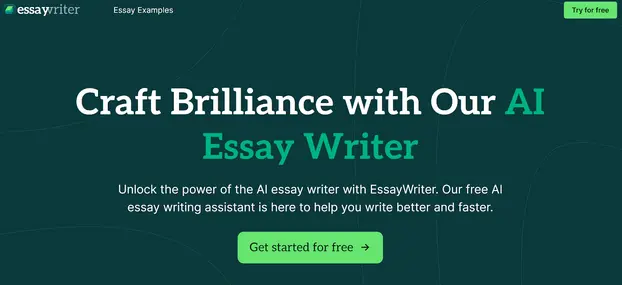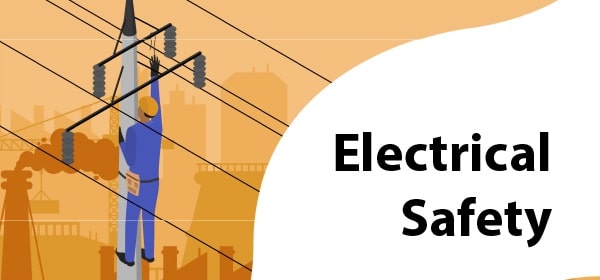Introduction
Congratulations, you’ve landed an interview! The job interview phase is your opportunity to shine, demonstrating your skills, experience, and personality. To help you excel in your upcoming HR interview, we’ve compiled the Top 20 HR Interview Questions and Answers for 2023. This guide equips you with insightful responses to common questions that interviewers often ask. Let’s dive in and empower you to impress your potential employer.
Top 20 HR Interview Questions and Answers for 2023
-
Tell Me About Yourself
This question is your chance to give a concise summary of your professional journey. Highlight relevant experiences, skills, and achievements that align with the job role. Keep it focused on your career progression, but feel free to add a personal touch to let your personality shine through.
Answer: “I have a strong background in marketing, with over five years of experience in digital campaigns and brand management. My passion for storytelling and data-driven strategies has led to successful campaigns that increased engagement by 30% for my previous employer. I thrive in collaborative environments and am excited to contribute my skills to your dynamic team.”
-
Why Do You Want to Work Here?
Employers want to know you’re genuinely interested in the company and the role. Show you’ve done your research by mentioning specific aspects of the company’s mission, values, or recent achievements that resonate with you.
Answer: “I’m impressed by your commitment to innovation and your recent award for Best Workplace Culture. Your focus on employee growth aligns with my values, and I believe my background in project management will contribute to your continued success.”
-
What Are Your Strengths and Weaknesses?
Be honest about your strengths and select weaknesses that can be seen as opportunities for growth. Frame weaknesses positively and explain how you’re actively working to improve them.
Answer: “My strengths lie in my attention to detail and problem-solving skills, which have allowed me to streamline processes and reduce errors. As for weaknesses, I’m focused on enhancing my public speaking skills, and I’ve joined a Toastmasters club to become a more confident communicator.”
-
How Do You Handle Stressful Situations?
Employers value candidates who can handle pressure with grace. Share a specific example of a challenging situation you’ve navigated, emphasising your ability to stay composed and find solutions.
Answer: “During a tight deadline for a critical project, I maintained open communication with my team, prioritised tasks, and delegated effectively. This approach ensured the project was completed on time, and we even received praise from our client for our teamwork.”
-
Where Do You See Yourself in Five Years?
Show ambition while aligning your goals with the company’s growth. Emphasise your interest in contributing to the company’s success and developing your skills.
Answer: “In five years, I envision myself as a senior marketing manager, leading innovative campaigns and mentoring a talented team. I’m excited to grow alongside the company and contribute to its continued success.”
Navigating Behavioral Questions
-
Describe a Challenging Team Project You Were Part Of
Employers want to see how you collaborate and overcome obstacles. Describe a project where you faced challenges and how your teamwork led to a positive outcome.
Answer: “During a product launch, our team faced unexpected technical issues. I took the initiative to organize a cross-functional meeting, where we brainstormed solutions and delegated tasks. Our collaborative efforts resolved the issues, and the product launch was a success.”
-
Share an Example of Conflict Resolution
Conflict resolution skills are valuable in any team. Describe a situation where you successfully resolved a disagreement while maintaining professionalism and harmony.
Answer: “I once had a disagreement with a colleague about project priorities. I initiated an open conversation, actively listened to their perspective, and proposed a compromise that balanced both priorities. Our collaboration improved, and we achieved better results.”
-
How Do You Prioritise Your Work?
Effective time management is crucial. Explain how you prioritise tasks based on urgency, importance, and deadlines, ensuring you meet your goals efficiently.
Answer: “I use a combination of to-do lists and time-blocking to prioritise tasks. I assess urgency and impact, focusing on high-priority items first. This approach ensures I meet deadlines and maintain a high level of productivity.”
-
Why Did You Leave Your Previous Job?
Be transparent about your reasons for leaving without criticising your previous employer. Focus on growth opportunities or seeking new challenges.
Answer: “I left my previous role to explore new opportunities for professional growth. I had achieved significant milestones and felt ready for new challenges that align with my career aspirations.”
If you’re in a similar phase and seeking new challenges, you might find interesting positions on the job portal foundit.
-
What Is Your Preferred Management Style?
Show adaptability by mentioning that you’re comfortable with various management styles. Highlight qualities you value in a manager and how they contribute to your productivity.
Answer: “I appreciate a manager who encourages open communication and values employee input. A collaborative management style empowers me to contribute my ideas and aligns with my teamwork-oriented approach.”
Discussing Skills and Achievements
-
Tell Me About a Skill You’ve Developed Recently
Continuous learning is essential. Discuss a recent skill you’ve acquired, how you’ve applied it, and the positive impact it has had.
Answer: “I recently completed a course in data analytics, which has allowed me to analyze marketing metrics more effectively. I applied this skill to optimize a recent campaign, resulting in a 15% increase in conversion rates.”
-
Describe a Time You Achieved a Significant Milestone
Employers want results. Share a milestone that showcases your achievements, demonstrating your ability to set goals and work diligently.
Answer: “At my previous company, I led a project that involved launching a new product line. Through strategic planning and cross-functional collaboration, we achieved a 25% increase in revenue within the first quarter.”
-
How Would Your Colleagues Describe You?
Demonstrate your self-awareness and interpersonal skills. Mention qualities that make you an effective team member and support your claims with examples.
Answer: “My colleagues would describe me as a reliable and supportive team player. I’m known for my willingness to lend a helping hand, whether it’s assisting with a challenging task or providing feedback for improvement.”
-
Why Should We Hire You?
Summarize your unique qualities and the value you bring to the company. Align your skills, experiences, and goals with the company’s needs.
Answer: “You should hire me because of my strong track record in driving successful marketing campaigns and my passion for contributing to a dynamic team. My strategic thinking and dedication to achieving results align perfectly with the goals of your company.”
Handling Situational Questions
-
How Would You Handle a Disagreement with a Supervisor?
Show your ability to handle conflicts professionally. Mention your commitment to open communication and finding common ground.
Answer: “If I had a disagreement with a supervisor, I would schedule a private conversation to discuss the issue openly. I would actively listen to their perspective, express my viewpoint respectfully, and work together to find a mutually beneficial solution.”
-
What Would You Do If You Made a Mistake That Affected a Project?
Acknowledge your accountability and highlight your problem-solving skills. Explain how you would take ownership, rectify the situation, and prevent future mistakes.
Answer: “If I made a mistake affecting a project, I would immediately inform my supervisor, take responsibility, and propose a solution to rectify the situation. I would also analyze what led to the mistake and implement measures to prevent it from happening again.”
-
How Do You Stay Updated in Your Industry?
Show your commitment to staying relevant in your field. Mention industry resources you regularly follow and how you apply new knowledge to your work.
Answer: “I stay updated by subscribing to industry newsletters, attending webinars, and participating in professional networks. This allows me to incorporate the latest trends and best practices into my strategies.”
Exploring Your Motivation
-
What Inspires You to Excel in Your Role?
Highlight your intrinsic motivation. Discuss how your passion for your work drives you to continually improve and contribute to your team’s success.
Answer: “I’m inspired by the impact my work can have on achieving company goals. Knowing that my contributions directly influence positive outcomes for both the company and our customers motivates me to excel in my role.”
-
How Do You Stay Motivated During Challenging Times?
Demonstrate resilience. Share how you maintain a positive mindset and focus on solutions, even in the face of challenges.
Answer: “During challenging times, I remind myself of the bigger picture and the goals I’m working toward. I also seek support from my colleagues and take short breaks to recharge, which helps me approach challenges with a fresh perspective.”
-
Do You Have Any Questions for Us?
Ask thoughtful questions to show your genuine interest and gain insights into the company culture and expectations.
Answer: “I’m curious about the team’s collaboration process and the company’s plans for innovation. Can you share how cross-functional teams contribute to project success here?”
Common HR Interview Questions and Answers: FAQs
Q1. What Are Some Tips for Answering Behavioral Questions?
A1. When answering behavioural questions, use the STAR method : Situation, Task, Action, Result. Describe the situation, the task you were assigned, the action you took, and the positive result of your actions.
Q2. How Can I Address My Weaknesses Positively?
A2. Choose a weakness that’s relevant but not critical to the job, and explain how you’re actively improving it. Focus on your growth mindset and commitment to self-development.
Q3. Is It Important to Research the Company Before the Interview?
A3. Absolutely. Researching the company shows your genuine interest and helps you tailor your responses to align with the company’s values, mission, and goals.
Q4. How Should I Prepare for a Video Interview?
A4. Treat a video interview like an in-person one. Dress professionally, test your technology beforehand, choose a quiet and well-lit space, and maintain eye contact with the camera.
Q5. How Can I Leave a Lasting Impression?
A5. Focus on your body language, maintain eye contact, and use positive, confident language. Express your enthusiasm for the role and the company, and remember to follow up with a thank-you email after the interview.


